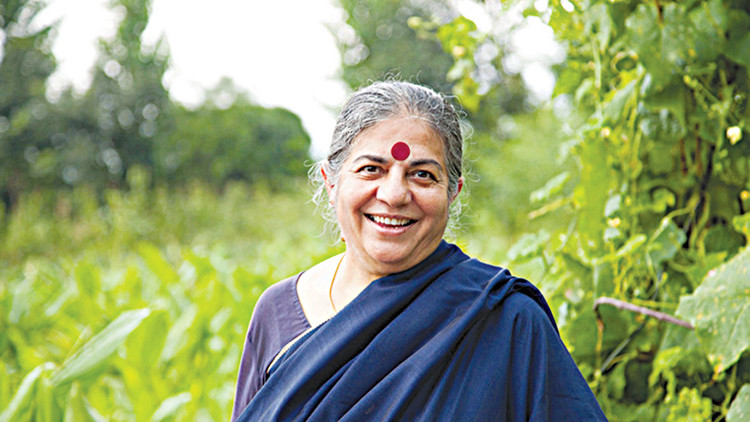Chennai / New Delhi, Jan 19 (FN Agency) “The issue of energy and climate havoc are very complex and have been approached in a reductive way and that’s why we have not moved towards real solutions,” noted environmentalist and climate activist Dr. Vandana Shiva said. In her keynote address at the 2-day 5th annual Energy Finance Conference India, which concluded on Friday at IIT Madras here, she said food has become the turf of contestation in climate change debate. Industrial food production is leading to consumption of fossil fuels, and is a leading driver for pollution and climate change.
The fertiliser industry’s new buzzword is ‘farming without farmers’ which will pave the way for a disastrous future.” Prominent among the speakers for the two-day conference were Aniruddha Banerjee, Chief General Manager from ONGC India; Dr. Satyanarayanan Seshadri, Department of Applied Mechanics, IIT Chennai; Soumya Dutta, Trustee, MAUSAM; M Arun Kumar Murugan, Tata Power; Prabhajit Kumar Sarkar, CEO, Ampera Energy Pvt. Ltd; Maria Chirayil, Senior Research Associate, Prayas Energy Group; Suranjali Tandon, National Institute of Public Finance and Policy; Avantika Goswami, Centre for Science and Environment; Chandrashekhar Chincholkar, Customized Energy Solution; Simran Grover, Centre For Energy, Environment, and People, and others. Dr. Krishna Vasudevan, Center and Area Coordinator for Energy at Indo-German Center for Sustainability (IGCS) and Professor, Department of Electrical Engineering, IIT Madras said, “With decarbonization becoming an urgent need, it is prudent to address immediately, the sector that contributes the most. The Energy sector is the one to be focussed on, addressing all the ramifications on technological, economic, social and environmental fronts.” The conference was attended by academics, think-tanks, industry representatives, experts and activists. The theme of the conference this year is ‘Decarbonisation’ with several discussions held around the policy on decarbonising, role of technological innovation in decarbonising the energy sector, financing decarbonising, international trends in decarbonising and its influence on India, alternatives to fossil fuel industry, etc.
“A policy on energy decarbonisation needs to necessarily address emissions from the fossil fuel industry. Anything short of this is only an eye wash, a postponement of a climate catastrophe and letting the industry go scott free while putting the burden on people who are already vulnerable to the outcomes of the climate crises,” said Swathi Seshadri, Director Programs, Centre for Financial Accountability. “Decarbonisation is a vital cog in India’s energy journey. If India has to grow sustainably while tackling the impacts of climate change, it becomes imperative that it follows the path of decarbonisation. For the Indian industry, which is trying to compete globally, it is becoming crucial to incorporate policies supporting decarbonisation otherwise they won’t remain relevant on the international stage, which is becoming extremely sensitive on the issue,” said Aarti Khosla, Director, Climate Trends.

